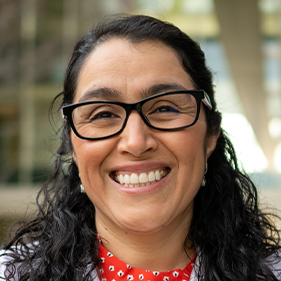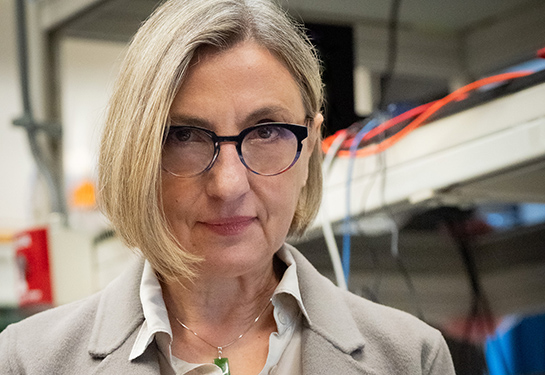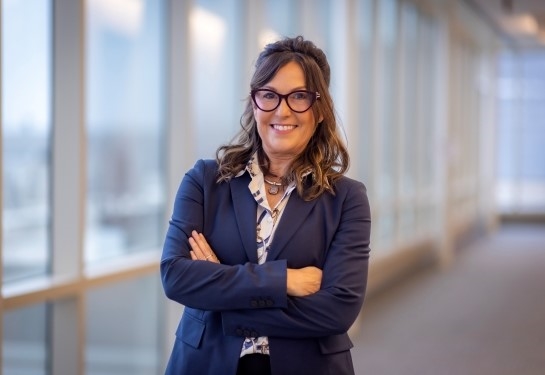UC Davis School of Medicine expands program to train rural doctors into Northern California
New partnerships in Shasta, Nevada and Humboldt counties aim to boost local primary care and psychiatry workforce
The UC Davis School of Medicine will expand its successful three-year medical school pathway into Northern California rural counties to more quickly fill workplace shortages of doctors who specialize in primary care and psychiatry.
Extending the program’s reach will allow medical students to train in hospitals and clinics in Shasta, Nevada and Humboldt counties. Medical school and community health care leaders hope the students, after graduation, will also spend their residency years in the rural counties and eventually practice medicine there.
The initiative, which begins next school year, is centered on a robust partnership between 11 organizations and the school’s ACE-PC pathway.
“The UC Davis School of Medicine is excited to unite with well-established health care organizations that share our mission of providing high-quality care to rural communities and medically underserved populations,” said Alicia Gonzalez-Flores, executive director of ACE-PC and an associate professor of health sciences.
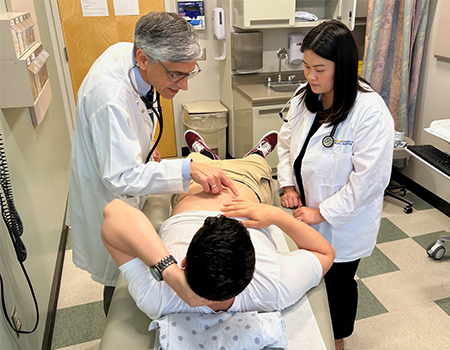
The new pathway will be known as Rural ACE-PCP, or Rural Accelerated Competency-based Education in Primary Care and Psychiatry.
“Rural ACE-PCP,” Gonzalez-Flores added, “will enhance medical education by expanding clinical training sites, and will also strengthen community partnerships, encourage high school and college students to attend medical school and, eventually, increase access to psychiatry and primary care.”
Program created through collaborative effort
The partner organizations in Shasta County are:
- Shasta Community Health Center.
- Hill Country Community Clinic.
- Shasta County Public Health.
- Dignity Health Mercy Redding Family Practice Residency Program.
The partner organizations in Nevada County are:
- Northern Rural Training and Employment Consortium.
- Chapa-De Indian Health.
- Western Sierra Medical Clinic.
- Dignity Health Sierra Nevada Memorial Hospital.
- Nevada County Health and Human Services Agency.
- Nevada County Public Health.
- Nevada County Behavioral Health.
Training sites in Humboldt County will be added in the near future.
Partnership leaders view Rural ACE-PCP as an opportunity to identify and train local, homegrown students who want to practice medicine in the community where they were raised.
“Training physicians in rural and medically underserved communities, especially when they have local ties, is key to advancing physician shortages,” said Glenn Gookin, a Nevada County family medicine physician who will help oversee training sites for Rural ACE-PCP. Gookin is program director of Sierra Nevada Family Medicine Residency, which is based at Chapa-De Indian Health and Dignity Health’s Sierra Nevada Memorial Hospital in Grass Valley.
Rural ACE-PCP will enhance medical education by expanding clinical training sites, and will also strengthen community partnerships, encourage high school and college students to attend medical school and, eventually, increase access to psychiatry and primary care.”—Alicia Gonzalez-Flores, executive director, ACE-PC
Rooted in longstanding partnerships
The effort in Nevada County builds on existing relationships between clinical sites and the Betty Irene Moore School of Nursing at UC Davis. The school’s students in physician assistant, family nurse practitioner and psychiatric mental health nurse practitioner programs experience meaningful training in the regions’ rural communities.
In Shasta County, Rural ACE-PCP will also rely on existing partnerships that for decades have allowed medical students and residents to care for patients in and around Redding.
“The expansion of ACE-PCP into Shasta County is an inspiring and much-needed step toward addressing health care access in rural communities,” said Amanda Mooneyham, a family medicine physician and residency program director at Shasta Community Health Center in Redding.
Mooneyham, a UC Davis medical school graduate who trained in Redding, added:
“It’s heartening to see such a strong commitment to training future physicians in areas where they’re most needed — and in a way that values continuity, community connection and primary care.”
Rural ACE-PCP complements other UC Davis mission-oriented pathways including Rural PRIME, which trains students during their four years of medical education to care for patients in rural areas.
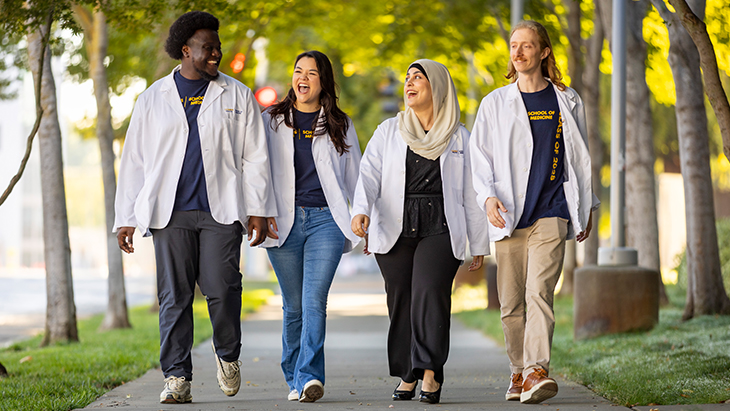
What is ACE-PC?
ACE-PC is a fast-paced and intensive pathway that puts students committed to primary care — family medicine or internal medicine — through medical school in just three years instead of four. Launched in 2014, it is the only program of its kind on the West Coast. The pathway was developed in response to the urgent need for primary care providers in Northern and Central California, especially in communities where residents are medically underserved.
After completing medical school in three years, ACE-PC graduates spend another three years in residency. And now, with Rural ACE-PCP, some graduates will have the opportunity to enter a psychiatry residency to help fill the critical specialty’s gap in rural areas.
Rural ACE-PCP hopes to educate 14 students over the next three years and place them in six different training sites for their clinical rotations. At some point in the second half of the three years, students will also be able to practice their skills in Humboldt County, where the School of Nursing already trains roughly 10 students a year in family practice and hospital settings.
A $750,000 grant from the County Medical Services Program funds the initiative. The organization provides health coverage for uninsured, low-income, indigent adults that otherwise don't qualify for publicly funded care.
“We appreciate the funding from CMSP, which is well aware of the challenges faced by residents of rural areas in seeking primary care and psychiatry services,” said Mark Servis, vice dean of medical education for the School of Medicine and a practicing psychiatrist. “We are also grateful to our community partners for their willingness to share medical expertise and model high-quality care with our students — their dedication will go a long way in preparing the next generation of rural physicians.”


